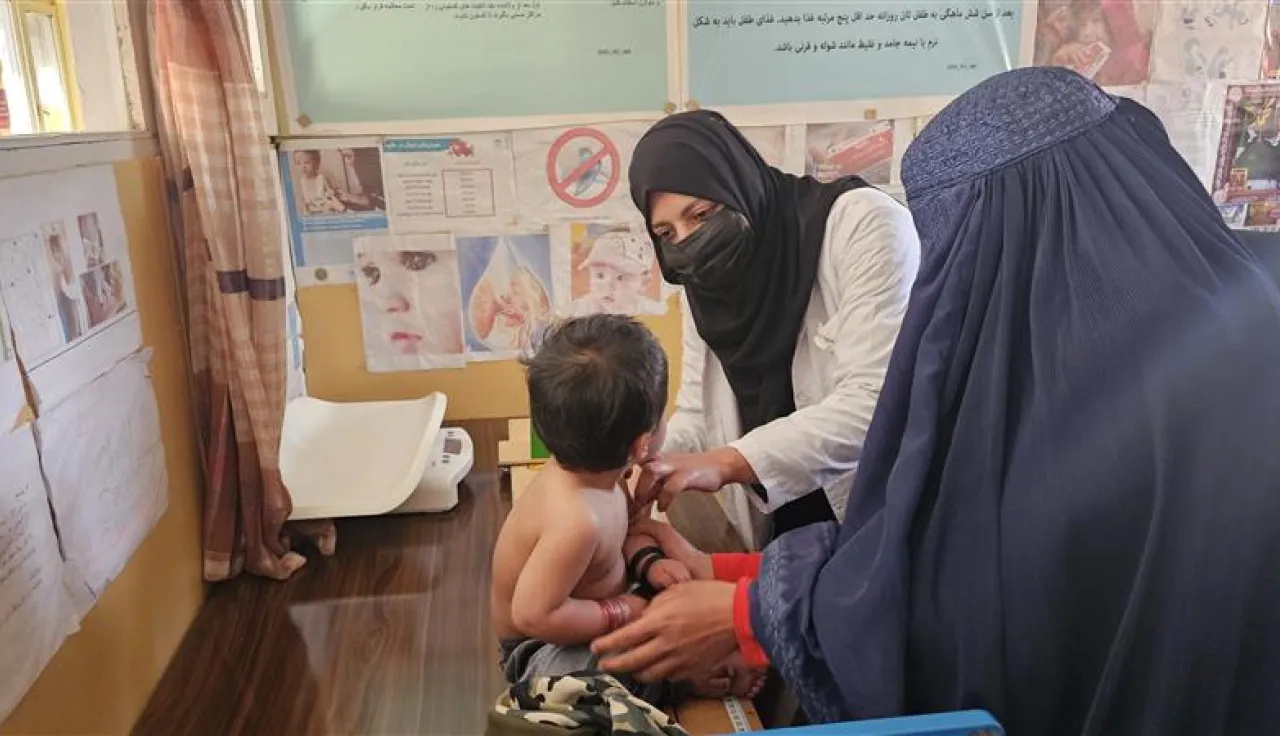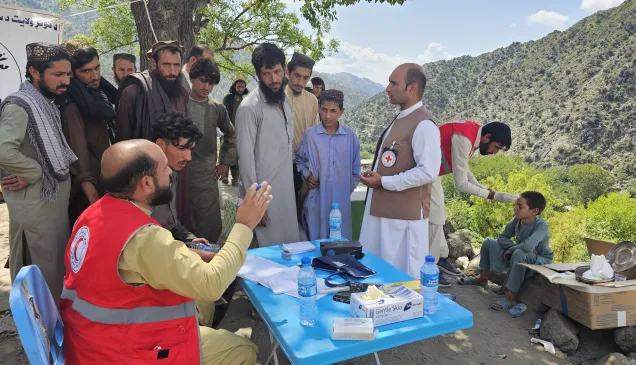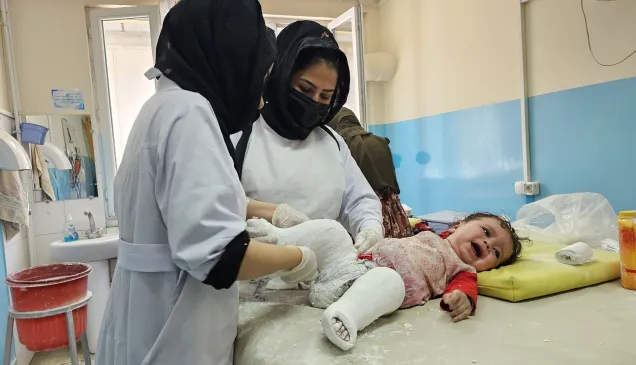Afghanistan: summary of operational facts and figures, January to June 2025

In the first half of 2025, the International Committee of the Red Cross (ICRC) facilitated improved access to primary health care, mostly for women and children, by donating medical supplies, supporting the routine vaccination and nutrition initiatives at primary health clinics run by the Afghan Red Crescent Society (ARCS).
The ICRC responded to humanitarian challenges across Afghanistan by supporting healthcare, providing physical rehabilitation services, assisting people in establishing livelihoods and earning incomes through cash-for-work projects, and improving access to clean water, sanitation and energy.
We continued to provide physical rehabilitation services for people with disabilities at the seven ICRC-supported physical rehabilitation centres across the country. We visited places of detention to improve the living conditions of detainees and ensure that people deprived of their liberty are treated humanely.
Community engagement remained a priority, with discussions held across the country involving local authorities, religious and community leaders and members. The ICRC remains committed to supporting the humanitarian needs of the people affected by the past conflict.
A look at the measurable impact of our work from January to June 2025:
-
608,600 patients, (64 per cent women), received primary health care at 47 health facilities of the Afghan Red Crescent Society (ARCS) that are supported by the ICRC.
-
164,418 doses of routine vaccinations were administered and 4,182 malnourished children benefited from the ARCS nutrition programme at the 46 clinics.
-
104,634 patients were assisted in seven ICRC-supported physical rehabilitation centres.
-
15,550 prostheses and orthoses were manufactured, and 72,949 physiotherapy sessions were held for people with disabilities.
-
16,629 detainees in 12 prisons received hygiene materials as the ICRC continued to support the Office of the Prison Administration (OPA) efforts to ensure suitable hygiene conditions in their detention facilities.
-
Over 423,000 people living in urban areas and 65,000 in rural areas gained access to clean drinking water.
-
850 households (6,800 people) earned income through cash-for-work projects in Uruzgan, Paktika, Kunar and Kunduz provinces.
-
59 cases of missing people were resolved and reconnected with their loved ones.
For more details, access the full document below:



